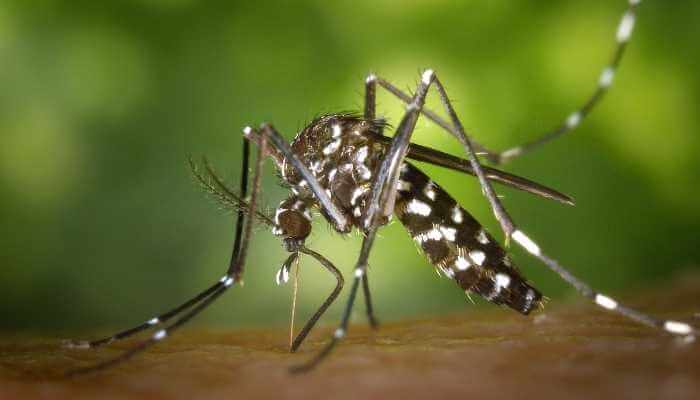There are so many plants that can repel mosquitos, that I’m fairly certain I will not be able to include all of them in one article. Since we’re focused on our backyards and outdoor spaces, I’ll limit the research to plants that do best in those areas.
The most popular and easiest plants to use for repelling mosquitos are citronella, mint, rosemary, lemon thyme, lavender, and catnip. But to truly get the best results, you can’t just plant them, you should use their oils.
I wanted to include not only plants that most people know are mosquito repellants, but also some that are a bit more unusual. I’ll not only provide you with a list of these plants, but I’ll also explain the science behind it and give you some recipes. So, keep reading!

Do Mosquito Repellent Plants Really Work?
Well, yes and no. You kind of have to understand that a mosquito hunts by scent. Our bodies are stinky things and mosquitos have no trouble finding us. We breathe out carbon dioxide, we sweat, you get the picture. Most of these plants work by virtue of covering those scents and throwing the mosquito’s tracking system off.
If you have a bunch of these plants around your outdoor living space, it can be helpful. But, unless they’re concentrated, the scents are not going to overpower the smells our body gives off. In those cases, you’d need to rub the leaves and oils on you to get the mosquitoes to ignore you. That’s why sprays and balms are so often used. Those are highly concentrated smells that mask our own.
So what is the best way to get these plants to be of use to you? Burn some of the leaves and let the smoke move around the area. Just don’t get directly in the smoke, because some of these oils can also be an irritant to the eyes.
Crush some of the leaves and rub them on your skin. Also, be careful of putting too much on your kids before you know if they are allergic or not. Some plant oils will break me out in a rash, so I didn’t want anyone to suffer through that. Spot test it first.
When I’m working in the garden, I rub my hands and arms on the rosemary, because I love that smell. Then I spread the oils onto my legs. The oils from those leaves help keep the mosquitos confused and therefore keep you from being bitten.
Mosquitoes aren’t the only thing that oils from the right plants can deter. Think of all those nuisance bigs that gather around us when it’s summertime. Gnats, flies, ants, and worse, biting flies – all of them use scent. So if you can throw them off and keep them from swarming you, that makes your outdoor time more tolerable. And just think – you’re doing it with far fewer unnatural chemicals and without using aerosol sprays.
Three Ways Growing Plants Can Help Repel Bugs
There are three ways I suggest handling pesky insects by growing plants. Obviously, you can do as I have done and makes sure every plant that is around the main outdoor living space is known to repel insects. I have a rosemary bush, a citronella plant, and a lavender plant all on my main patio.
These are small now, but they will get bigger and better. I plan on adding a half-barrel planter of mint. That means they’re easy to grab hold of and they already give off some scent in that area. So taking a leaf or spring and crushing it to further develop the scent is no issue.
Another idea that I’ve used before is planting some of these in large containers like half-barrels and really letting the bush or plant expand there. If it’s like mint, you definitely don’t want to put that in a bed with other flowers or plants because mint will overgrow and spread everywhere. Unless you don’t mind that, of course.
With such a huge concentration of the plant, it already gives off quite a smell. But the main thing is because you’ll have such a huge amount of the plant, taking leaves off to use here and there won’t leave the plants naked. Just keep in mind that when they do bloom, there will be pollinators on them – so don’t make a bee mad to keep away the mosquitoes.
The last thing I do is make natural cooling sprays instead of buying bug spray. I’ve not done it at our new home, but I’ve made them before and recently I bought some lavender cooling spray made from the same things. It’s actually very easy:
You can use fresh herbs and plant leaves or you can dry them and then use them because you are basically making tea from it – but it’s not for drinking.
- Chop up and combine 2 tablespoons of each of at least three of the plants that are listed below. I like to keep it to plants that you’d find in the kitchen anyway. So let’s go with lavender rosemary and mint.
- Steep these herbs in a cup of boiling water until it cools off.
- Strain out the herbs
- Add a cup of witch hazel
- Funnel or pour the mixture into a spray bottle
- Add the top and shake.
- Store it in the fridge so you can spray it on your hot skin all summer.
I tell you what, this reminds me of making flavored syrups for my coffee and smoothies.

Essential Oils from These Plants Can Help
If you don’t have all of the plants on hand or your plants aren’t to the stage that you feel comfortable taking leaves from them yet, you can use essential oils. Or, maybe you’re like some of my friends and you wound up with an abundance of these essential oils thanks to someone’s multi-level marketing. Here’s your chance to really use them!
Check to see if you happen to have any of these on hand:
- Citronella
- Rosemary
- Lemongrass
- Peppermint
- Lavender
- Orange
- Eucalyptus (or lemon eucalyptus)
These recipes make a nice spray that you can keep in the fridge during the summertime. Just mist yourself on those hot days when you want to dissuade the bugs from biting. How do you make it? It’s so simple, you can use this recipe to teach your kids. No cooking involved.
Essential Oil Spray
- 20 Drops of Preferred Essential Oil
- 1 Cup Witch Hazel
Just add 20 drops of your preferred essential oil from the list above to 1 cup of witch hazel and you’ve got a simple and easy recipe.
Another recipe I’ve run across but haven’t had time to try includes apple cider vinegar – but I’m not a fan of apple cider vinegar on my skin, so I’m not sure about it. In case you want to try: 2 cups witch hazel, ½ – ¾ teaspoon of your choice of essential oil, and 1 teaspoon of apple cider vinegar.
The Plants That Repel Bugs
I promised a comprehensive list of plants that repel Mosquitoes and other insects and here it is. So take your list to your local grower or coop and grab seeds or a seedling plant and figure out if you need pots or if you have a place for them in the yard.
Remember, the flowers often attract pollinators like bees and butterflies, even if they deter mosquitoes. And even some herbs bloom and will attract pollinators as well at some point in their life span.
| PLANT OR HERB | FLOWERS |
|---|---|
| EUCALYPTUS | NASTURTIUMS |
| MINT (any kind) | ROSE GERANIUM |
| LEMON BALM | BEE BALM |
| LEMON THYME | CATNIP |
| ROSEMARY | LAVENDER |
| SAGE | MARIGOLDS |
| LEMONGRASS | ALLIUM |
| CITRONELLA GRASS | CITRONELLA GERANIUM |
| BASIL | FLOSS FLOWER |
LEMON EUCALYPTUS (not recommended for pregnant women or children under 3. This plant tends to cause allergies more often than any of the others, so I don’t use it.)
Whether you actually go as far as to use them for repelling insects or not – you won’t regret having these beautiful plants in your outdoor living space.
Remember to always test homemade products on a small part of the recipient’s skin before spraying them all over. You don’t want to deal with an allergic reaction. Some herbs and oils can be irritating to some people’s skin.









